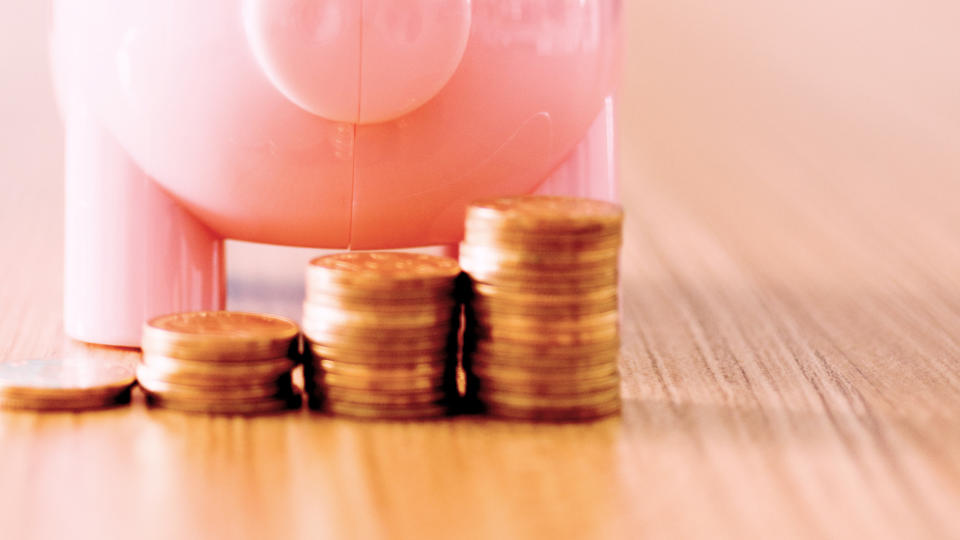Why Every Woman Needs a ‘Freedom Fund’ That Enables Her To Walk Away From Toxic Situations

A common financial rule of thumb is to have three to six months’ worth of living expenses saved in an emergency fund, but it may also be a good idea to have additional money saved for non-emergency situations. Perhaps you’re living with an awful roommate and want to move out, are in a toxic work environment and want to quit, or you want to feel financially empowered to get a divorce. Or, maybe you just really, really need a vacation. A “freedom fund” can enable you to walk away from a bad situation (or onto a relaxing beach) without having to worry about your finances.
Take a Look Back: 2022 Year in Review
More: 3 Easy Tips To Turn Your Credit Woes Into Wows
In today’s “Financially Savvy Female” column, we’re chatting with Julia Pham, a wealth advisor and CFP at Halbert Hargrove, about why you should consider saving up a “freedom fund” — and how to do it.
Why is it so important for women to have enough money saved to walk away from toxic situations?
I think many of us have been in a living situation, job or relationship that isn’t ideal. When you add in a financial position that makes it difficult to leave, it adds even more stress. Nobody wants to feel trapped, so it’s important to be mindful of red flags, and come up with an exit strategy right when you feel like you are in a situation that is no longer serving you. This strategy should include a plan of how much you need to save to leave the situation, and a realistic timeline of how long it will take to save. Your mental health is worth spending that extra time to protect yourself.
Take Our Poll: How Long Do You Think It Will Take You To Pay Off Your Credit Card Debt?
How much money should women aim to save in this fund?
How much you save really depends on the toxic situation you are trying to leave. If you are in a marriage that you’re trying to leave, keep in mind that the average divorce costs between $15,000 and $20,000. If you are in a job that you are trying to move on from, it’s best to proactively apply to and find a new job before you leave your current one. Sometimes your new job won’t have you start for several months, and even then, it takes a couple of weeks for the first paycheck to arrive. Plan to save enough to cover anticipated gaps between jobs. If it’s a living situation that you’re trying to change, figure that you’ll need to save for at least a deposit, first month’s rent and moving expenses. You may also need to set a budget for the cost of new furniture and houseware.
What are some tips for reaching these savings goals?
Just like any other savings goal, determine the total amount you will need to save in order to leave your bad situation. From there, figure out how much room in your budget each month you have to set aside for this goal. Determine how this goal lines up with your other priorities and see if you can cut other expenses temporarily to meet this goal faster. Set up a recurring deposit into an account for your goal so that it’s automatic, and you don’t have to think about it each month.
What types of accounts are best for holding this type of money?
Since these are short-term funds that you will likely need in the next year, it’s best to keep this money in a liquid account that is easily accessible. A high-yield savings account is a great savings vehicle, and with interest rates on the rise, these types of accounts have been becoming more attractive.
More From GOBankingRates
GOBankingRates wants to empower women to take control of their finances. According to the latest stats, women hold $72 billion in private wealth — but fewer women than men consider themselves to be in “good” or “excellent” financial shape. Women are less likely to be investing and are more likely to have debt, and women are still being paid less than men overall. Our “Financially Savvy Female” column will explore the reasons behind these inequities and provide solutions to change them. We believe financial equality begins with financial literacy, so we’re providing tools and tips for women, by women to take control of their money and help them live a richer life.
This article originally appeared on GOBankingRates.com: Why Every Woman Needs a ‘Freedom Fund’ That Enables Her To Walk Away From Toxic Situations

 Yahoo Movies
Yahoo Movies 